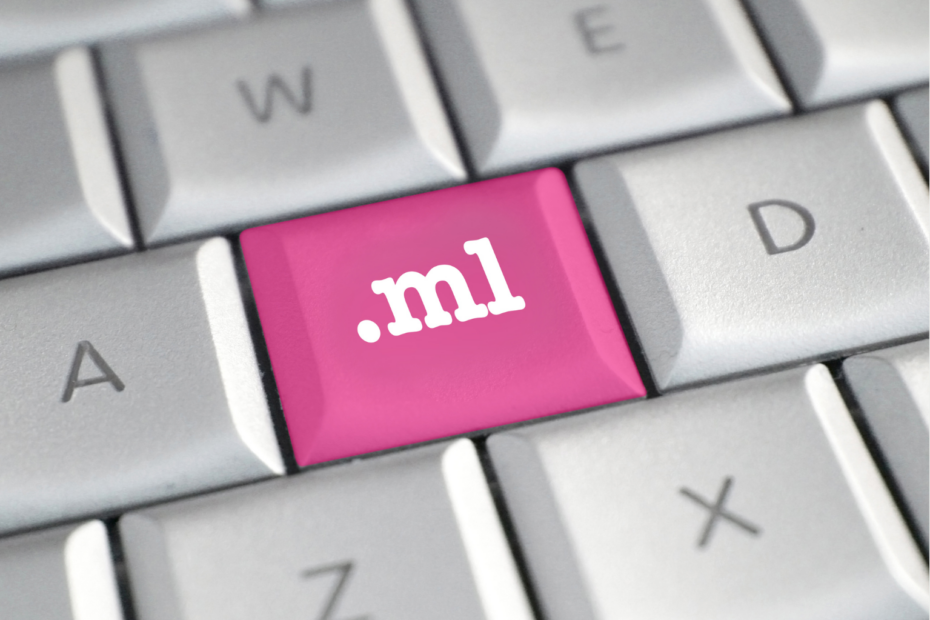As a Data Engineer, you help your company cope with the vast amounts of data that are generated every day as a result of big data. Your task is to prepare and store the unstructured information so that it is available for further analysis.
What are the tasks?
The Data Engineer ensures that Business Analysts or Data Scientists are provided with the necessary data they need for their tasks. This will require various types of tasks. These include, for example:
- The right data sets must be found in order to be able to implement the requirements from the business side.
- The data engineer develops algorithms to prepare and cleanse the source data so that other data scientists can easily use it.
- ETL – pipelines that procure data from source systems, prepare it, and deposit it into a target database must not only be created but also constantly tested for functionality.
- All of these tasks must also ensure that data governance concepts are adhered to so that all users have the necessary permissions.
In many cases, data engineers work closely in a team with data scientists, who can then convert the data provided into analyses or machine learning models. In such circumstances, it can also happen that tasks of data scientists, such as the creation of analyses, are also taken over.
In which industries do Data Engineers work?
Nowadays, there are no longer certain industries in which data engineers are increasingly working, since large amounts of data are generated in almost all companies, these skills are also needed almost everywhere. Thus, the position of data engineer offers the advantage to choose the industry according to personal interests.
In the industry or the automotive sector, a lot of technical data is generated from production or sensors on the finished product. The main focus here is on the early detection of faults, for example, whether a machine is overheating or producing poor-quality parts.
In retail and e-commerce companies, however, the focus is completely different. The main goal of data storage is to better understand the customer and thus better tailor the respective product portfolio to the customer. In e-commerce, for example, it could be relevant to evaluate the customer journeys in order to recognize how the customer moves through the website.
One last big industry is banks and insurance companies. Large amounts of data are generated about customers, which must be made available to the data scientists and offer their own technical challenges.
What skills should you bring with you?
As a data engineer, you are primarily concerned with data storage and provision. Therefore, you should have sufficient knowledge in the area of databases and data architectures or the ambition to quickly familiarize yourself with these topics.
This includes being able to weigh up the advantages and disadvantages of data lakes and data warehouses and choose the right data architecture depending on the use case. In addition, you should know the state-of-the-art databases that are already used by many companies and, if possible, be able to implement them independently.
Similarly, important are skills in the area of common ETL tools, so that the data finds its way from the source systems into your data architecture and is also transferred into the target format along the way.
To be able to implement all these tasks and skills, basic programming skills in Python and SQL are essential for a data engineer. In many cases, these are the most common languages when working with databases or ETL tools and will therefore become your daily companion.
Depending on the position you want to apply for, skills from the area of a business analyst or data scientist are of course a plus. In reality, the applications will probably also often overlap and a clear separation will be difficult. Thus, initial knowledge of the use of business intelligence tools and machine learning is definitely an advantage in your application.
Which tools and technologies do Data Engineers use?
Data Engineers employ a diverse set of tools and technologies to accomplish their responsibilities in data management and analysis. These tools are crucial for tasks such as data extraction, transformation, storage, and integration. Below, we delve into the key tools and technologies that Data Engineers regularly use:
They heavily rely on ETL tools to facilitate the extraction of data from a multitude of sources. These tools are designed to transform the data to align with specific business requirements and subsequently load it into a designated data warehouse or repository. Among the popular ETL tools are Apache Nifi, Talend, Informatica, and Microsoft SSIS.
Data integration platforms play a pivotal role in connecting disparate data sources seamlessly. They enable Data Engineers to consolidate data from various origins. Prominent options in this category encompass Apache Kafka, Apache Nifi, and Microsoft Azure Data Factory, each offering efficient data integration capabilities.
Data Engineers are intricately involved in data warehousing activities. These data warehousing solutions serve as repositories for data storage, organization, and management, catering to analytical needs. Leading data warehouse platforms include Snowflake, Amazon Redshift, Google BigQuery, and Microsoft Azure SQL Data Warehouse.
These professionals grapple with the management of substantial datasets. To effectively process large volumes of data, they harness big data technologies such as Apache Hadoop, Apache Spark, and Apache Flink. These technologies empower Data Engineers to handle extensive data volumes efficiently.
Data modeling tools are indispensable for Data Engineers when it comes to designing data schemas and structures. These tools allow for the creation of efficient data storage and retrieval systems. Examples in this category include ER/Studio, Lucidchart, and DbVisualizer.
Data Engineers work closely with a variety of database management systems, ranging from relational databases like MySQL, PostgreSQL, and Oracle to NoSQL databases such as MongoDB, Cassandra, and Redis. Proficiency in these systems is essential for managing data efficiently.
Data Engineers harness cloud platforms like Amazon Web Services (AWS), Microsoft Azure, and Google Cloud for a host of data-related tasks. These cloud platforms offer a wide array of services and tools that enable them to handle data storage, processing, and analytics efficiently. Notable services include AWS Glue, Azure Data Factory, and Google Cloud Dataflow, which provide cloud-based ETL and data integration capabilities.
These tools and technologies collectively empower Data Engineers to execute their roles effectively, ensuring that data is managed, processed, and utilized for business insights and decision-making. As the field continues to evolve, Data Engineers need to stay current with emerging tools and technologies to meet the ever-evolving demands of the data-driven landscape.
How can your training and study look like?
There are many courses of study that are helpful to start a career as a data engineer. It is important that you come into contact with programming in this subject and learn to create algorithms. If possible, you will also learn about the common tools in the field of big data and databases during your studies.
As a prospective data engineer, bachelor’s degrees in computer science, mathematics, physics, or data science are conceivable. However, as with many other jobs in the field of data science, the current demand for good specialists is so great that many companies also welcome career changers.
What techniques does a data engineer use?
Data Engineers use various techniques to design, create, and manage data pipelines and data infrastructures. Some of the techniques used are:
- ETL (Extract, Transform, Load) – This technique involves extracting data from various sources, transforming it into the desired format, and loading it into a target database or data warehouse.
- Data warehousing – This technique involves designing and building a data warehouse that can store and manage large amounts of data. The data warehouse is optimized for reporting and analysis.
- Data Modeling – This technique involves creating a data model that defines the structure of the data, the relationships between data entities, and the data types. This is important to ensure that the data is well organized and can be easily accessed by various applications.
- Data integration – This technique combines data from various sources, such as databases, APIs, and file systems, into a single source of truth. This ensures that the data is consistent, accurate, and up-to-date.
- Data Governance – This technique involves establishing policies, procedures, and guidelines for managing data. Data governance ensures that data is used in an ethical and legal manner and that the quality of the data is maintained.
- Data Security – This technique involves implementing security measures to protect data from unauthorized access, theft, or corruption. Data engineers must ensure that data is secure both in transit and at rest.
- Cloud computing – This technique uses cloud-based services such as Amazon Web Services (AWS) and Microsoft Azure to build and manage a data infrastructure. Cloud computing offers scalability, flexibility, and cost efficiency.
How does a Data Engineer work with other roles?
Data Engineers work closely with other data-related roles such as Data Analysts, Data Scientists, and Business Intelligence professionals to ensure that data is available, accessible, and usable.
- Data Analysts often rely on Data Engineers to provide clean and organized data that can be used in their analyses.
- Data Scientists need high-quality data to build and train their models, and data engineers play a critical role in ensuring that data is available in the right format and at the right time.
- Business intelligence professionals rely on data engineers to set up and maintain the data pipelines that feed their reports and dashboards.
In addition, data engineers also work with IT and software development teams to ensure that the infrastructure and systems that store and process data are properly designed and maintained. Overall, collaboration between data engineers and other data-related functions is critical to the success of a data-driven enterprise.
What might the career path of a data engineer look like?
The field of data engineering is relatively new, but growing rapidly due to the increasing demand for data-driven decision-making across all industries. A career in this field can be very rewarding and offers opportunities for growth and development. Here are some of the common career paths:
- Junior: Junior data engineers typically work on small projects under the supervision of senior data engineers. They help with data integration, cleansing, and storage, and may also work on data pipelines and ETL processes.
- Data Engineer: Data engineers work on large and complex data projects. They design and develop data pipelines, ETL processes, and data storage systems. They also work closely with Data Scientists, analysts, and business representatives to ensure that data is accurate, timely, and accessible.
- Senior: Senior Data Engineers lead large-scale data projects and mentor junior Data Engineers. They also work to design and implement data architectures that are scalable, secure, and efficient.
- Data Engineering Manager: This job role leads a team of data engineers and oversee the development of data pipelines, ETL processes, and data storage systems. They also work closely with other stakeholders to ensure that data is used effectively to drive business results.
- Data Architecture Leaders: Data architecture leaders are responsible for designing and implementing an organization’s overall data architecture. They work closely with other stakeholders to understand business requirements and design an architecture that meets those requirements.
- Chief Data Engineer: These are the most senior data development professionals in an organization. They are responsible for setting the overall data engineering strategy and ensuring that it aligns with the organization’s business objectives.
Data engineers may also specialize in specific areas, such as data warehousing, data integration, or data processing. Some data engineers also take on roles such as data scientists or data architects. The career path is constantly evolving as new technologies and techniques emerge. One thing is certain, however: data engineering will continue to be an important field in the years to come.
This is what you should take with you
- A data engineer ensures that the large volumes of data in a company are processed and stored in a targeted manner.
- They are responsible for the proper functioning of ETL pipelines, compliance with data security guidelines, and deciding on the appropriate data architecture.
- Indispensable skills for data engineers are knowledge of data architecture and databases, as well as basic programming skills in Python and SQL languages.
What is Collaborative Filtering?
Unlock personalized recommendations with collaborative filtering. Discover how this powerful technique enhances user experiences. Learn more!
What is Quantum Computing?
Dive into the quantum revolution with our article of quantum computing. Uncover the future of computation and its transformative potential.
What is Anomaly Detection?
Discover effective anomaly detection techniques in data analysis. Detect outliers and unusual patterns for improved insights. Learn more now!
What is the T5-Model?
Unlocking Text Generation: Discover the Power of T5 Model for Advanced NLP Tasks - Learn Implementation and Benefits.
What is MLOps?
Discover the world of MLOps and learn how it revolutionizes machine learning deployments. Explore key concepts and best practices.
Other Articles on the Topic of Data Engineer
- Here you can find current job offers as Data Engineer in your region.

Niklas Lang
I have been working as a machine learning engineer and software developer since 2020 and am passionate about the world of data, algorithms and software development. In addition to my work in the field, I teach at several German universities, including the IU International University of Applied Sciences and the Baden-Württemberg Cooperative State University, in the fields of data science, mathematics and business analytics.
My goal is to present complex topics such as statistics and machine learning in a way that makes them not only understandable, but also exciting and tangible. I combine practical experience from industry with sound theoretical foundations to prepare my students in the best possible way for the challenges of the data world.





